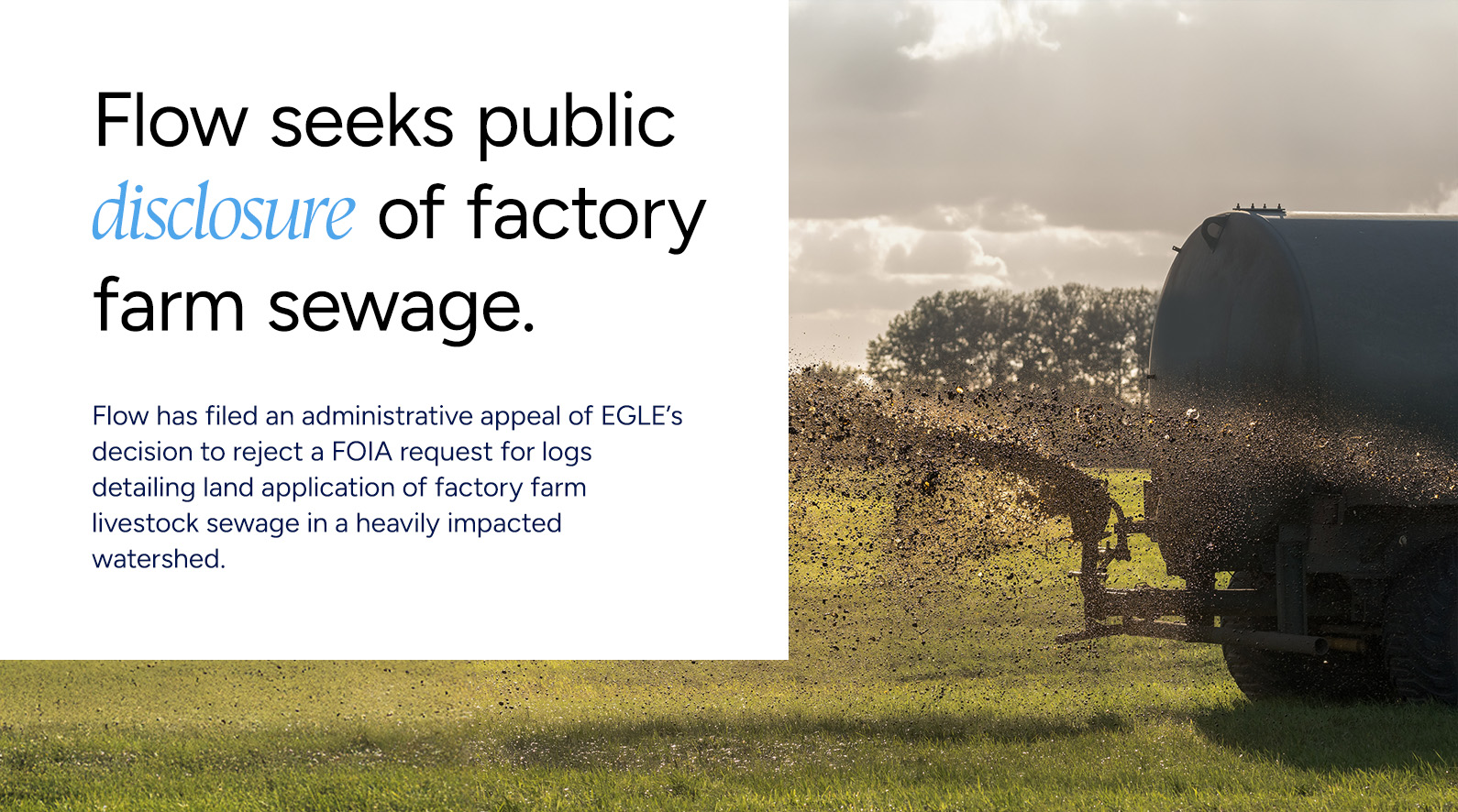
Traverse City, Mich. — Flow Water Advocates (“Flow”) has filed an administrative appeal of a Michigan Department of Environment, Great Lakes, and Energy (EGLE) decision to reject Flow’s FOIA requests for logs Concentrated Animal Feeding Operations (CAFOs) are required by permit to maintain and disclose to EGLE and the public. These logs from fourteen CAFOs provide details on land application of livestock sewage in a heavily impacted watershed. As Great Lakes water quality and access advocates, Flow has a long-standing interest in protecting Michigan’s surface and drinking water.
Support Flow’s work to defend the Great Lakes.
CAFOs, commonly referred to as factory farms, are large livestock facilities that house several hundred to tens of thousands of animals, producing sewage equivalent to large cities. The National Pollutant Discharge Elimination Systems (NPDES) permitting program under the Clean Water Act regulates their animal waste disposal. CAFO operators typically dispose of waste by applying it to fields — often in amounts far greater than can be taken up by the soil and crops. Rural watersheds across Michigan, and in turn the Great Lakes, are heavily impacted by CAFO waste runoff and leaching.
“For many rural residents, dealing with CAFO odors, runoff, heavy trucking, and water quality destruction — surface and ground — has become an exhausting, expensive, year-round ordeal,” says Flow Legal Director Carrie La Seur. “Michigan has something priceless in its natural heritage. This is not just a paperwork exercise, it’s essential information citizens need to protect their health and quality of life.”
The logs detail the time, date, quantity, method, location, and application rate for each location where CAFO wastes are applied to land; a description of the weather conditions at the time; and whether the land was frozen or snow-covered. Crucially, they also include the total amount of nitrogen and phosphorus applied to each field that receives CAFO wastes. Overloading these nutrients can cause toxic algal blooms, closed beaches, and fish kills. The disclosure Flow seeks is critical to understanding how CAFO waste impacts lakes, streams, and other waters.
By Michigan law, the public has the right to access any document “prepared, owned, used, in the possession of, or retained by a public body in the performance of an official function, from the time it is created” (MCL 15.232). If the documents do not exist, the failure to maintain records by all fourteen CAFOs would represent egregious NPDES permit violations, and require immediate enforcement action by EGLE to protect the health of Michiganders.
###
Flow Water Advocates is an independent 501(c)(3) nonprofit organization based in Traverse City, Michigan. Our mission is to ensure the waters of the Great Lakes Basin are healthy, public, and protected for all. With a staff of legal and policy experts, strategic communicators, and community builders, Flow is a trusted resource for Great Lakes advocates. We help communities, businesses, agencies, and governments make informed policy decisions and protect public trust rights to water. Learn more at www.FlowWaterAdvocates.org.
